Beyoncé's Coachella Performance Changed the Game

What are brown girl dreams made of? What visions fill the mind of a black woman at rest-not tossing fitfully after a day of poorly paid labor, exhausted from unrequited love and unacknowledged contributions as she anticipates waking to another day of giving too much and receiving too little? How would a black girl dream if her wounds were healed after they had been seen, acknowledged, and bound up by private and public love? What might she imagine if her body were well and full with the manifestation of that healing love?
Would would brown girls dream of? Pomping and circumstancing with an HBCU marching band; repping the Divine 9; Lifting Every Voice; reuniting with her girls; battle dancing her little sister; pushing up on her man; making room for her mentees; showing love to her people; remembering her past; pointing toward her future; being gracious and casting shade all at the same time. Brown girls would dream Beychella.
Or rather, Beychella is one dream of brown girls if they they had the space, time, and resources to manifest the their talents fully. Surely there are others, but this one became real Saturday night when Queen Beyoncé became the first black woman to headline California’s signature music festival, Coachella. The performance came after postponing her 2017 appearance. Bey told us, "I was supposed to perform at Coachella before, but I ended up getting pregnant, so I had time to dream and dream with two beautiful souls in my belly, and I dreamed up this performance."
Beyoncé’s Coachella dream proved as groundbreaking and game-changing as her visual album, Lemonade. When she disrupted our world in April 2016, I immediately called together a roundtable of writers and thinkers to help me unwrap the extraordinary gift Beyoncé had given us when she did the work of centering black women’s stories in Lemonade. Two years later, I needed these folks again. So I once again called together the Lemonade Roundtable, and in black feminist tradition added new voices to the conversation! All are in formation to understand the meaning of this brown girl dream.
Melissa Harris-Perry: Beyoncé served the world Lemonade in a 65-minute HBO film following the arc of the album as it dropped on Tidal. This is different. Coachella is an outdoor music festival. To watch the performance live, you needed to stream it on Coachella’s YouTube channel. Following social media, I got the sense many people found the performance when their timelines went full Beyhive. Where were you when you saw the performance or realized it was happening?
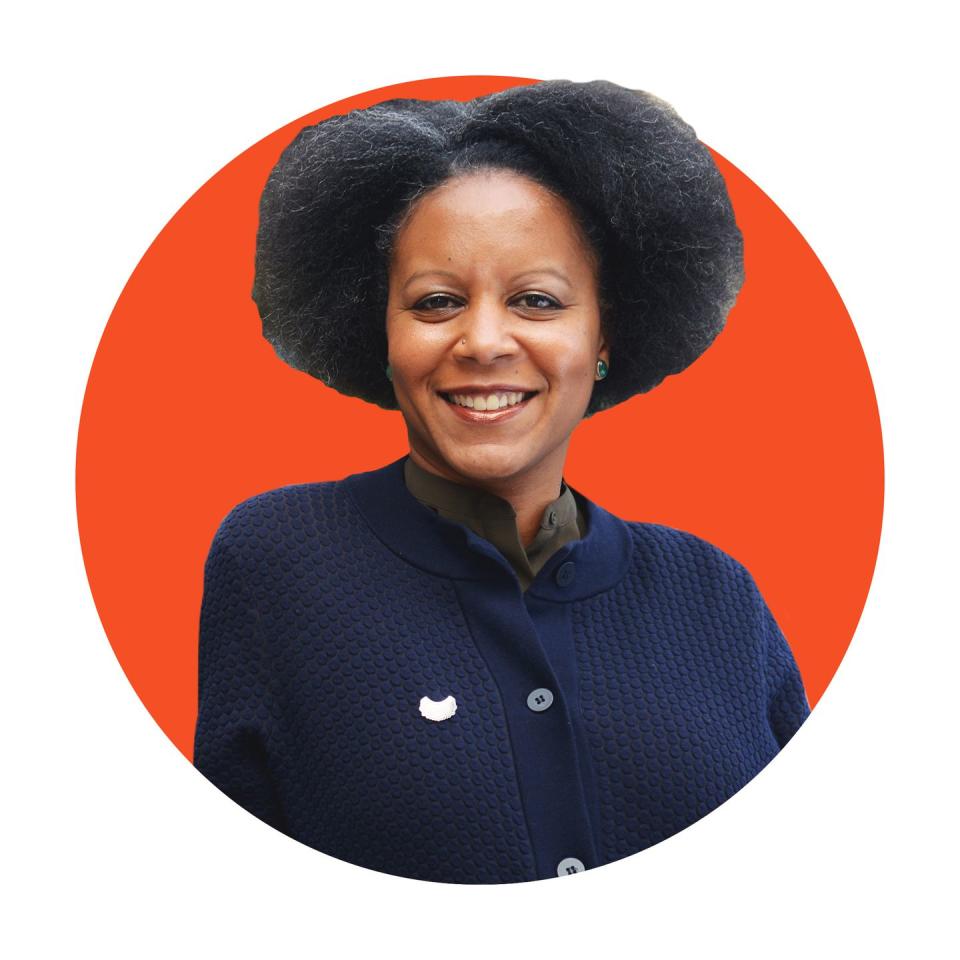
"Being a political scientist in this time of heightened political madness has given me an academic version of FOMO. I always wonder if I am missing a news story that will help me make sense of the world. As a result I’ve developed a bad habit of rolling over in the middle of the night to check texts, emails, and the Twitter feed on my phone. I am not a member of the Beyhive. I have always respected the work and work ethic of Beyoncé, and had heard in passing she would be headlining at Coachella, but somehow I was unaware that collective Black American edges would be snatched, destroyed, ripped out, shaved off, just gone forever. At 4:30 am EST I realized a core element of Black America had been changed." - Christina M. Greer, Ph. D., is the 2018 NYU McSilver Institute Fellow and an associate professor at Fordham University.

"When I rolled into consciousness at 6:45 AM on Sunday and immediately found my timeline marveling at how Beyoncé claimed Coachella for black folks with HBCU style pageantry and diasporic nods and swag surfing. I was devastated that I had forgotten to stay up and watch. Once I retrieved a now-disabled link to her performance, I slapped the thigh of my friend asleep beside me. 'Neicy, wake up!' I whisper-screamed. 'WE HAVE TO WATCH BEYONCE!'" - Mankaprr Conteh is a writer and multimedia journalist living in Brooklyn, New York.
"I watched online after the fact and I am holding a grudge against my friends who watched live and didn't warn me-a grudge I plan to hold for exactly ever!" - Joy-Ann Reid is the host of MSNBC’s AM Joy *.

"I experienced #Beychella on livestream from New Orleans. What Beyoncé managed to do is artfully and exquisitely epic: unparalleled in musicality and performance, unapologetically rich in cultural blackness and aesthetics, arresting in vocal range and soulful dance, and as committed to precision as to feminism and freedom. Brilliant, bodacious, masterful and game-changing, Queen Bey clearly did not come to play!" - Trimiko Melancon is an author and professor.
Melissa Harris-Perry: What do you make of the ways Beyoncé investigated both her personal history and the collective histories of black people?
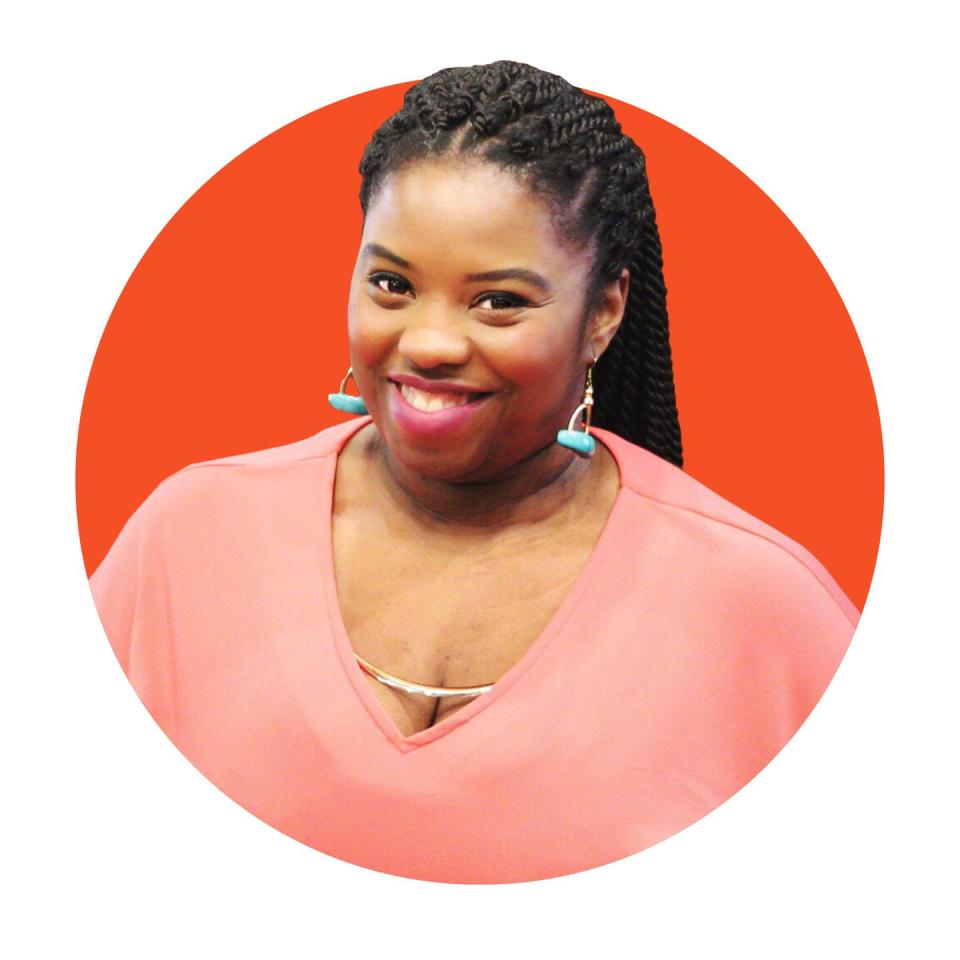
"This is what Black women are doing in their everyday lives-show up in a space not created for us and prove that our talent and expertise is far beyond the audience in front of us. She didn't have to dial back her culture or make herself more palatable to fit in to whatever the heck Coachella is. Beyoncé's performance was an example of something my grandmother always told me: 'God will make space for you, make sure to show your true self when you get there.'" - L. Joy Williams is a political strategist and host of #SundayCivics on SiriusXM Urban View.
"I’ve been around long enough to understand the marks, the deeply grooved etchings of transformative moments. The haunt of Sam Cooke’s 'A Change is Gonna Come.' I could see Toni Morrison’s Beloved, referencing slavery, which is the nation’s original haunting. Beyoncé's intelligent, attentive, and relentlessly intentional performance was a mark that quite brilliantly curated a black archive outside of our assigned neighborhood at Coachella. The sustained power of that performance was at though she were asking, 'Are you woke yet?' She collected a community of voices, institutions, family, histories. Then in our songs and spoken words she asked, 'You woke yet?' 'Yes, Queen. We woke and been to the river!'" - Karla FC Holloway is a James B. Duke Professor Emerita and HBCU alum.
"Beyoncé had the whole world watching and chose to start the performance noting she is the first black woman to headline Coachella. Then says, 'Ain't that 'bout a bitch?' That is really important. Celebration and mourning. Beyoncé knows she is great but also that other black women deserved to be here before her. It means she is going to take her shot, but it is not just for her, but for all black women. Black women are continuously underrepresented despite having made tremendous cultural contributions, so this performance gave that representation to a global audience." - Zachary Bynum is a junior political science major at Wake Forest University.
"Part of the beauty of Beychella was that the level of perseverance, intricate thought, Black history, attention to detail and the current Black zeitgeist were all on display. A show where the Black woman who we have seen work for over twenty years and who seems to just be hitting her stride, is sharing a stage with her family and former group members. When Destiny’s Child performed together I thought of the 1984 Michael Jackson 'Victory' tour. Michael by no means had to share the stage with his brothers, but he chose to as a reminder of the work and collective effort it took to get him in position. That mindset permeated throughout the show for me, this idea of putting others both onstage and behind the scenes. How many young Black artists, from dancers to musicians to stylists to choreographers, had not only the experience of their lives, but now have a line on their resume that could change their creative and financial future henceforth?" - Christina M. Greer is an associate professor at Fordham University.

"Beyoncé choose to include her family-biological, married, and musical-in her performance. That is a significant choice on her part to not spotlight her work but also include her sister Solange, her sisters Destiny Child and her husband in her show reminding us that her journey as an artist was and is not something she travelled or travels alone." - Angelique Roche is a strategic communications strategist, pop-culture journalist, and the host of Marvel’s Voices.
"Beyoncé delivered an HBCU-themed show to highlight the sheer excellence cultivated in these Black spaces. Her inclusion of dancers and musicians of all genders opened up a new space for thinking about Blackness in the 21st century. She posed this question in political and cultural terms-and anchored this expressive query through Black southern cultures. You can't be pro-Black and not hone in on the specific ways Black women and queer folks enliven, sustain, and support the survival, living, and thriving of Black communities." - Treva Lindsey is a professor of women's studies at Ohio State University.
"Listen, this show was for Black women and the Black community. I went to an HBCU, Bowie State University (BSU) for undergrad, and that BSU black and yellow that Bey repped makes me proud to be an alumna. I'm about to go donate to my alma mater now." - Joanne Smith is the executive director of Girls for Gender Equity.
Melissa Harris-Perry: Speaking of HBCUs, I think we need to talk about the band.
"I opened Twitter and played a clip, and heard the womp womp of HBCU style tubas behind her own band and I was like HOLD THE PHONE, DID SHE BRING A WHOLE HBCU BAND WITH HER?! My husband was a drum major at NCCU. Once you’ve been a member of an HBCU band, there is a lifetime commitment to listening to and watching videos of the best HBCU bands on friends' shared feeds. So let’s just say that the whomp, whomp sound and the drums are a routine morning soundtrack in my home. Even early on a Sunday. My husband immediately started to wonder which college band Beyoncé had secured, and predicted it might be Southern University (also known as the Human Jukebox) because of the style and power, but a little research revealed it was Bey’s own ensemble aptly cranking. I was rushing out for work travel and watched the rest in the airport, trying to look sane and bounce at the same time." - Blair LM Kelley, Ph. D., is assistant dean of Interdisciplinary Studies and International Programs, College of Humanities and Social Sciences at North Carolina State University.

"Sometimes a band is more than a band. Beyoncé is always allowing us to reimagine black women's roles in our communities. Traditionally men in the marching band are drum majors. They get the spotlight on the field even if many of the instrumentalists making the music are women. They lead the band and work the crowd. Beyoncé subverts this expectation. From the opening performance with the drum line soloist to the dance breaks to the majorette solo, Beyoncé centers women's role 'in the band' in a way that that says to the audience: 'We are taking the lead.' By taking control and leading the entire show, she makes me think about how black women have always led our communities but aren't always acknowledged. Beyoncé owns the center. And it is never just about her. In this current election cycle where there are twice as many black women running for office than there were in 2016, I wonder how empowering it must be to see a performance like this. See my point? This band is not just a band." - Zachary Bynum is a junior political science major at Wake Forest University.
"At an HBCU, the band is always more than a band. For nearly 20 years of my life my mother was Director of THE Southern University Marching Band’s Dancing Dolls and the Director of Student Activities at Southern University and A&M College-the largest land grant college aka HBCU in the country. That means as a child my life consisted of drumlines, live performances, catch-on steps, football games, homecoming concerts and Springfest.
HBCUs are our history and our Greek life marked the creation of a system, a way to give back to our communities. Both my parents attended an HBCU and I am the proud dual-graduate of an HBCU. Growing up, I watched PWIs take the ideas my mother had for costumes, catch-on steps, and shamelessly copied the work of legends like Isaac 'Doc' Greggs in doing arrangements and field formations without a hint of credit given to the time and skills it took to create, develop, and perfect that skill. It matters because PWIs, without an regard for tradition, have continuously adopted HBCU and Divine Nine traditions without understanding any of it. Saturday, Beyoncé reclaimed all that and more on a global stage.
My mom used to say that the football game was nothing more than breaks between the pre-game show, halftime, and the battle of the bands post-game. From the moment I heard the arrangement of 'Do Whatcha Wanna' by Rebirth Brass Band-infamously played by the Southern University Marching Band as they marched off the field-I knew this was going to be pure and unapologetically authentic Black Girl Magic." - Angelique Roche is a strategic communications strategist, pop-culture journalist, and the host of Marvel’s Voices.
Melissa Harris-Perry: This might seem heretical, but why does it matter? There are many ways to measure the quality of an artist from record sales to sold out concerts to Super Bowl halftimes to career longevity. Beyoncé has dominated in some of these metrics. Why does it matter that she was able to hold court at Coachella?
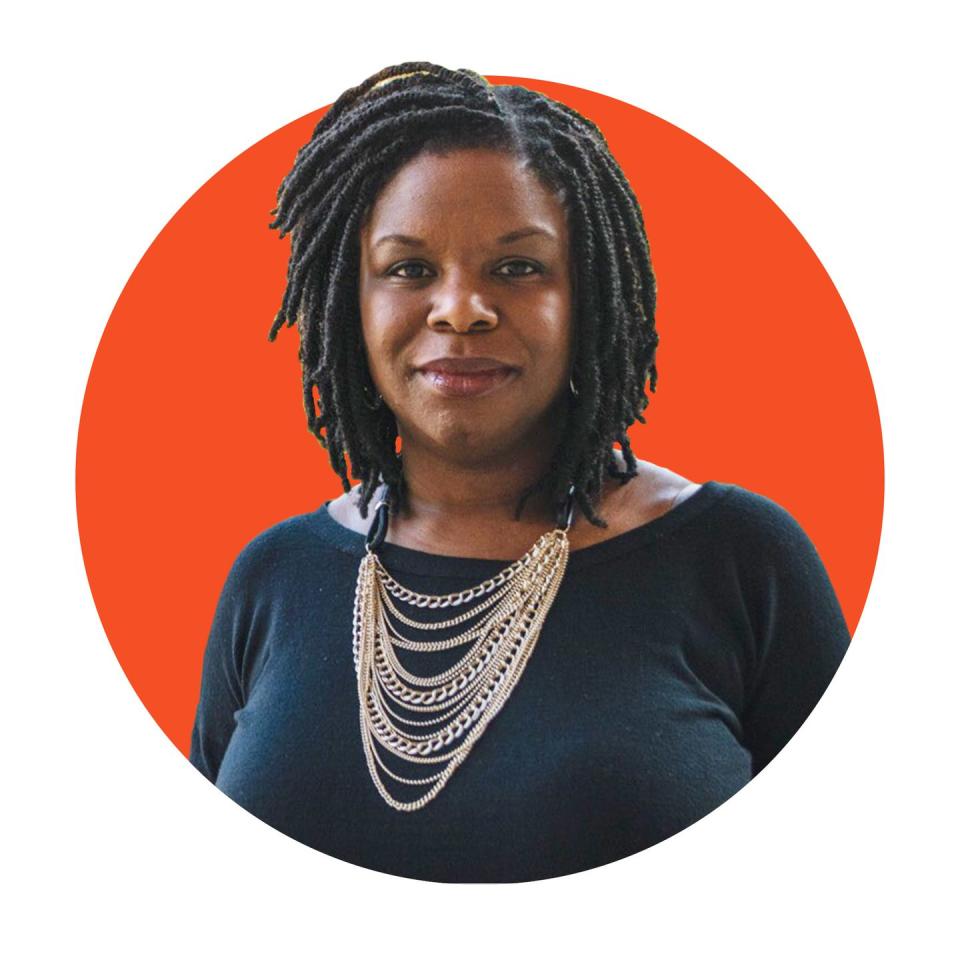
"She did that. A Southern black woman brought her real, authentic self to the stage. The frats and sororities, with their probate shows, the band, the J-setting cheerleaders cranking then sitting like proper ladies in front of the band, the black woman drum major, the swag surf, the respectability of the Negro National anthem accented with fire! And as black feminist scholar Anna Julia Cooper wrote in her foundational 1892 text A Voice from the South, when and where Beyoncé entered, and the whole race entered with her." - Blair LM Kelley, Ph. D., is an assistant dean at NC State University.
"It matters for a host of reasons. The bold expression of black identity performed live without hesitation ensures that there will be no misinterpretation of her talent or her message. To witness this level of black excellence, in this moment where our bodies remain criminalized and used as targets by police and vigilantes is to remind us-black people, black women of the lineage we are born from-our strength, our beauty, our power. This is why her performance, this artistic representation of resistance, matters so deeply in this moment. She forces the world to SEE US, even when they try so desperately to see past us or around us, Beyoncé holds their gaze and not because of her beauty but because of how challenging her art has become." - Danielle Moodie-Mills, is the creator and host of #WokeAF, one of the fastest growing progressive talk shows on SiriusXM.
"Live performances are the measure of a true entertainer and there is nothing in the world like a HBCU halftime performance. The hours and hours of practice, dedication and skill it takes to remember all the steps, create smooth transitions, and in this case pull off costume changes-not to mention the sheer amount of physical ability and cardiovascular strength necessary to keep moving for that amount of time-without missing a beat is no easy feet. WHAT Beyoncé did on Saturday equates to four Super Bowl shows on steroids. There aren't any second chances when it's showtime, you get one shot and Beychella was a masterpiece." - Angelique Roche is a strategic communications strategist, pop-culture journalist, and the host of Marvel’s Voices.
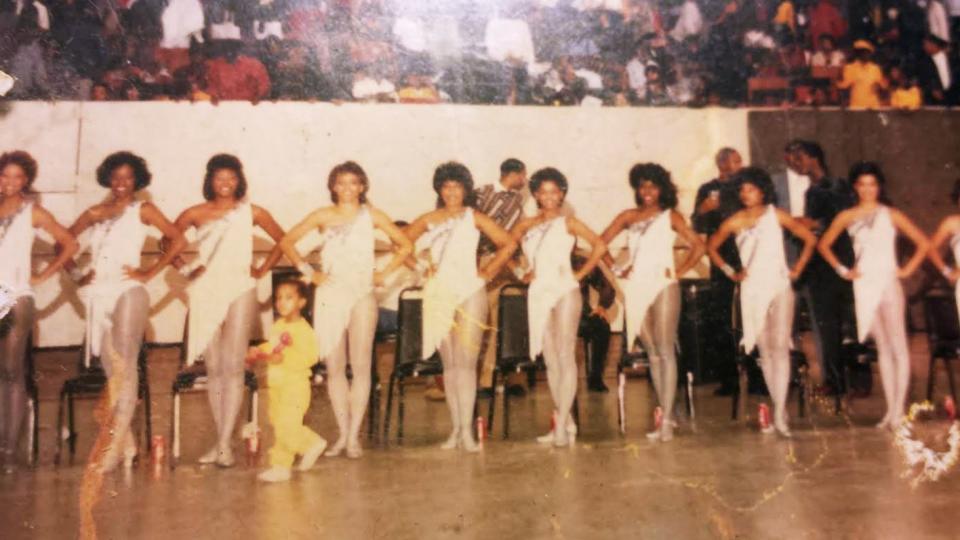
"Beyoncé's most powerful statement is always her excellence. Her contemporaries, if there are any, just aren't able to do what she does. She also celebrates our traditions in a way that empowers and educates. Beyoncé uses her femininity, sexuality, skill and her global platform as power. It is equally important for the entire world to see. Entertainers and entertainment have been pivotal in changing perceptions when it comes to race, gender, equality, etc. Beyoncé takes her duty seriously and with each live performance represents the very best of us bringing, unapologetic homage to the HBCU tradition and other definitively African-American traditions." - Nathan Hale Williams is an award-winning filmmaker, author, and entertainment attorney.
Melissa Harris-Perry: It’s been two years since we were all together to talk about Lemonade. So much has changed for Beyoncé, for the country, even for Serena who made that incredible cameo! What is different for you in April 2018 than in April 2016, and how did it affect how you received Beychella?
"It is rare that a concert leaves you inspired to do better, do more for yourself, learn more about yourself, and try harder at whatever it is you are doing in your life. The common thread I see in social media is that they want to do more. Even in these times of strife, racism, frustration, and uncertainty, this concert brought Black joy and motivation to the masses. The level of uncertainty and anxiety surrounding Black communities due to draconian policing, institutional structures that work against the core principles of democracy and inclusion, and the celebration of white supremacy, anti-Black racism, capitalism, and patriarchy in the highest office in America, we needed Beychella. We needed it as a reminder. We needed it as an elixir. We needed it as a stimulator. And so we march on, until victory is won." - Christina Greer is the host of The Aftermath on Ozy.com.
"Everyday in Trump’s America is a reminder of how invisible people of color can be when our voices are actively being ignored, diminished, or wiped away by policy and politics. While I loved Lemonade and personally related to the journey of it, Beychella and its abundance of Blackness including quotes from Malcolm X and samples from Nina Simone was a much needed reminder of how powerful it is to be Black women in America. To put it simply, people need to be reminded to put some respect on it, as Beyoncé once said… Bow down." - Angelique Roche is a strategic communications strategist, pop-culture journalist, and the host of the new Marvel’s Voices.
"I am so hungry for Black cultural expressivity right now. I want to live in Wakanda. I want to pledge Beyta Delta Kappa. It's a moment where I am thirsting for transcendence, but also justice-centered work that is wedded to the belief (even if not possible) that we will win. Beychella wasn't escapism per se, but a glimpse into the possibility we already articulate and to the depths and breadths of Black genius being a sustainable force in an anti-Black, anti-woman, anti-queer, anti-poor, and anti-trans world." - Treva Lindsey is a professor of women's studies at Ohio State University.
"Once again, she centers our resistance to white supremacy and standards of beauty. She centers our genius, our culture, our talent. In the past two years nothing has changed so much as my will to fight against oppression and white supremacy has deepened in a way I didn't think it could. This battle we're in right now is against white supremacy in a way I never thought my generation would have to battle. There is so much work to be done, and Beyoncé by all measure has become a part of the soundtrack of the black resistance-and it is flawless." - Danielle Moodie-Mills is the host of #WokeAF on Sirius.
"We're in a desperate time energetically. Donald Trump's presidency has brought extreme uncertainty and, in many respects, chaos to our world. It has also pulled back the mask of discrimination, unresolved race issues and inequities that exist for non-white male members of this society. With Lemonade, Beyoncé made the most personal and political statement of her career because she needed to for herself. Now, she steps back into the spotlight celebrating Blackness in a way that we needed for our community. Apparently, she knew already knew that." - Nathan Hale Williams is an award-winning filmmaker, author, and entertainment attorney.
"I want to go way back to what the student said about a record number of black women running for office in 2018. What's different two years on is that the mask has been ripped off a part of America's ugly interior. We are no longer living under the delusion that race, gender and sexual identity progress is a universally accepted ideal or an inevitable fact. But two years later we also know that black women can't just upend the Super Bowl or produce an album that shakes the music industry's foundation or make blockbuster movies and defend Wakanda with brilliant efficiency. We can also hand a Senate seat to Democrats in Alabama, a governorship to a Democrat in Virginia. Black women are 'feeling ourselves,' to quote Beyonce. Perhaps more than at any time since Barack Obama's election in 2008. In the worst of times, we are more clear-eyed, but also more confident. I read all of that confidence and renewed purpose and frankly, give no f--s determination into Beychella."- Joy-Ann Reid is the host of MSNBC’s AM Joy *.
Melissa Harris-Perry: Black America’s bard, Langston Hughes advised, “Hold fast to dreams/ For if Dreams die/ Life is a broken-winged bird/ That cannot fly.” And Bey herself told us “I dream it, I work hard/ I grind 'til I own it.” What do you make of this dream we all call Beychella?

"Look at what happened when this Black woman had nearly a year to play with thought, to dance with fantasy, to world-build. Maybe, as Beyoncé dreamt of what she wanted to create for this society, she dreamt of what she wanted this society to give her babies: knowledge, pride in identity, deep joy, and freedom, freedom. Perhaps, less abstractly, she simply dreamt of her babies having the sorts of experiences she never had-here, Black collegiate experiences-as parents are wont to do. Regardless, Beyoncé’s dreams led her to navigate the institutions black people have built in pursuit of knowledge, joy and freedom. As I reflect on how I swayed and twerked and whined and cried to her performance, as I think about what it felt like to revel in untethered bliss, I can’t help but think what I felt, in that moment, was liberation. And I can’t help but think Beyoncé wants black people to know liberation is in our reach if we continue to dream of it." - Mankaprr Conteh is a writer and multimedia journalist living in Brooklyn, New York.
"What a rich dream it was. It really is the reminder that in spite of what happens to us, we will still be us. That black American culture and black American consciousness grew out of pain, but with that pain we still managed to produce joy. Black colleges, black fraternities and sororities grew out of our systematic exclusion from white institutions, so what was built behind the veil was different and all our own. Beyoncé also reminded her audience of the richness and value of that life. In a time when many are quick to question the necessity of HBCUs because the barriers of legal segregation have been lowered, Bey showed us the importance of continuing to value black institutions and the education, art, and culture that come from them." - Blair LM Kelley, Ph. D, is a historian and assistant dean at NC State University.
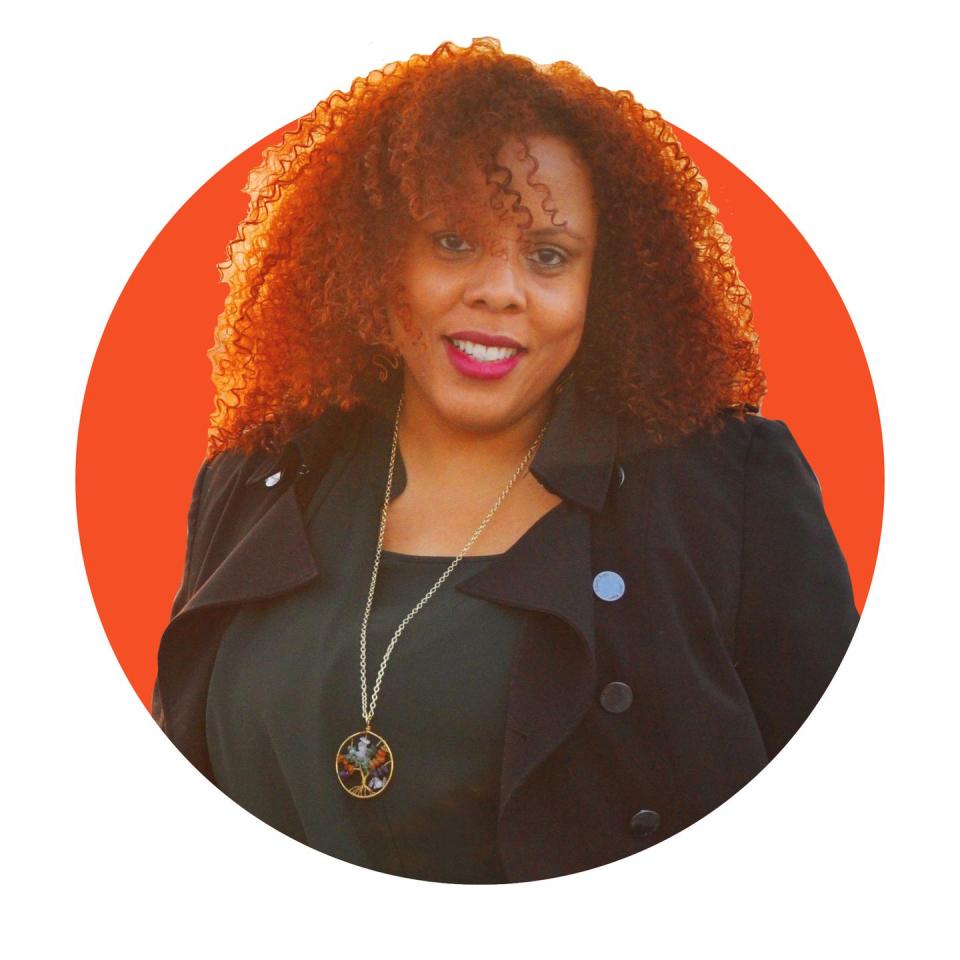
"On a daily basis I work to advance an organization that centers black (cis and trans) girls and gender non-conforming/non-binary youth while combating gender and racial injustice. It is the like dreaming while awake to see a grown Black women unapologetically take up space, demonstrate Black excellence, and push through a narrative of invisibility and erasure. My gaze on Beyoncé is an an elder of sorts. I'm walking in my purpose and during the same era as the most powerful Gen X-ers to date. Beyoncé isn't my God, but she and I and all of us are part of that dream of our ancestors dared to dream." - Joanne Smith is the executive director of Girls for Gender Equity.
"There are only a few performers in music today who matter beyond the quality of their music and lyrics-but who are also impacting the culture. Kendrick Lamar (make that Pullitzer Prize-winning performer Kendrick Lamar) is one. Beyoncé is arguably even more important. Coachella, since 1999, has never had a black woman headliner. It has never been known for being particularly culturally sensitive (every year attendees have to be rebuked for rocking culturally appropriative costumes, and the founder is a right wing billionaire with exactly zero connections to modernity). It is a manifest, meaningful, woke dream for Beyoncé to walk into that space and paint it Black-opening with a black college motif, complete with the Black National Anthem, a black college band, and a sendup to black fraternities, sororities and pledging was culturally revolutionary. Every generation has a performer who defines the age, with their music, their use of dance, big performance, music video, mystery and culture and their sheer scale of fame and performance. There were the Beatles and the Rolling Stones. There was James Brown. There was Michael. There was Janet. There was Whitney. There is Beyoncé. And Beyoncé is serving more blackness-and specifically, more Southern Blackness-with every iteration of her career, and doing it during the age of Donald Trump and rising neo-Nazism, no less." -Joy-Ann Reid is the host of MSNBC’s AM Joy *.
Melissa Harris-Perry: With the world still processing her weekend performance, Beyonce announced the Homecoming Scholars Program on Monday afternoon. The effort donates $100,000 to students at historically black colleges and universities like those she expertly cited in her live performance: Louisiana's Xavier University, Ohio's Wilberforce University, Alabama's Tuskegee University, and Florida's Bethune-Cookman University.
"Per usual, Beyonce is putting her money where her money maker is." - Mankaprr Conteh, Alabama's Tuskegee University.
"Lord! $100,000 to HBCUs. I can’t even take it!" - Angelique Roche is a strategic communications strategist, pop-culture journalist, and the host of Marvel’s Voices.
"No surprise to me. My uncle used to drive Destiny’s Child when they sang at the Michigan State Fair long before they were famous. We found out one Thanksgiving when my nieces were rhapsodizing about the group and he says, you mean Miss 'BAYoncee?' We nearly died about how casual he was about having known her. He remembered her as being unusually respectful and generous. He was driving a bus as a 70-year-old man, but she would always make sure he joined them for dinner after the group performed at the Fair. Occasionally she even took him a plate. That is serious generosity for a young girl who must have seen a 70-year-old man as elderly. It speaks to the quality of her character, character that she considered the needs of the bus driver while she was on road to her own fame. He remembers her saying, 'C’mon Mr. Harrison, come get you some food too.' Today it is $100,000, but it began with a plate of food. That is thoughtfulness spreading wide and deep, and I know that it comes from a space of sincere attentiveness to the folk. Uncle Warren was from Selma and marched in Selma. He got his picture taken with President Obama on the 50th anniversary. Beyoncé represented my uncle’s generation of activism and struggle at Coachella. She is representing by giving forward to these young people." - Karla FC Holloway is a professor emerita from Duke University.
Beyoncé is a singular cultural force now testing her capacity to get us into formation for personal and social transformation. With Beychella and the Homecoming Scholars, she reveals her extraordinary brown girl dreams and models action for supporting the manifestation of more dreamscapes. I’m the youngest child and was taught to read, write, and dance by my older sister. I was the first black woman to earn a PhD in my department, an accomplishment made possible by devoted mentors. I am a teacher committed to creating pathways of opportunity for students to learn in unique environments.
This is the substance of brown girls dreaming: sisterly love, guidance, direction, and lessons of how to build voice so that you can have access to everything, I first encountered it in Jacqueline Woodson’s 2014, memoir Brown Girl Dreaming:
I cannot write a word yet but at three
I now know the letter J
love the way it curves into a hook
that I carefully top with a straight hat
the way my sister has taught me to do. Love
the sound of the letter and the promise
that one day this will be connected to a full name,
My own
That I will be able to write
by myself
Without my sister’s hand over mine.
Making it do what I cannot yet do.
How amazing these words are that slowly come to me.
How wonderfully one and on they go.
Will the words end, I ask
whenever I remember to
Nope, my sister says, all of five years old now,
and promising me
infinity.
You Might Also Like

